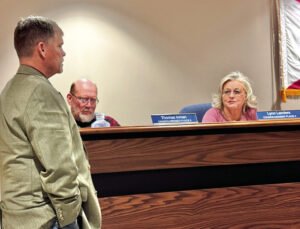Job creation is top priority for Alabama
Analysts and economists tell us the country is back to economic growth. Wall Street, the cause of what is now known as the Great Recession and the untold suffering of millions of families, has seen the stock market rebound as economic figures improve. Consumer purchasing is up, and housing prices have stabilized. Things are better today than they were last year, and certainly better than two years ago when it looked like we were entering another Great Depression.
Yet, unemployment, the one economic indicator most important to us in Alabama, remains much too high.
Back in January, Alabama unemployment peaked at 11.8 percent, one of the highest rates since the early 1980s. Since then, the state labor market has improved, and unemployment fell to 10.9 percent in March. We have added on average more than 10,000 jobs per month since the beginning of the year. State officials are cautiously optimistic that the job market will continue to improve.
No one would ever say that current unemployment is acceptable. The only good thing to note is that the shedding of jobs has stopped, the job picture has stabilized, and hopefully we will continue to see steady progress in getting folks back to work.
Creating jobs, and creating an economic climate that enhances job creation, must be the number one priority for our state. In the last legislative session, a bi-partisan bill that targets job creation passed with flying colors, and helps focus on those who are currently jobless.
The “Reemployment Act of 2010” allows businesses to take a state company income tax deduction of up to 50 percent of the gross wages paid to any person they hire who is now drawing unemployment benefits or whose benefits have expired. It is a one-time deduction, and it can be claimed by a business after a worker has been on the payroll for a year. No job paying less than $10 per hour qualifies for the special deduction.
The law is a clear incentive for businesses to hire those who have been looking for a job a long time. Using a tax break like this also doesn’t hurt the education budget, where all state income taxes go. The Legislative Fiscal Office estimates that the income taxes paid by those workers hired under the law would offset the deductions businesses take.
A measure like this is a win-win-win situation. Those who are looking for work can get a job. Companies can get a tax break for hiring the unemployed. The state economy gets a shot in the arm and puts our fellow citizen back to work.
One of the areas of concern going forward is Alabama’s manufacturing base because we know that making things is the basis of jobs and a healthy economy. We have spent the better part of a decade building new industries in the state, most notably bringing the modern automotive industry to Alabama. Our state is now the fifth largest producer of autos in the country, and employs tens of thousands on the assembly lines of Mercedes, Honda, Hyundai and Toyota, and in the suppliers that keep those factories going.
Yet our state continues to lose industrial work. Estimates are that Alabama lost more than 20,000 manufacturing jobs and 300 plus manufacturing companies between March 2009 and March 2010, a loss steeper than anything seen. The biggest losses were in wood products and electronics, casualties of the construction downturn and the loss of consumer confidence. Interestingly, the traditional industries of textiles and metal fabrication and steel gained, and hopefully will continue to see gains.
As the affects of the new jobs bill kicks in, it can give us a blueprint of how we can help existing industries maintain jobs and recruit new ones to broaden our manufacturing base. In Alabama we’ve always made things, and in order for us to thrive we must continue to do so.
Let’s hope that as the economy continues to grow that the pace of job creation will quicken and more folks can get back to work. Because no matter what an economist tells you, if you don’t have a job, times are still tough.
Johnny Mack Morrow is a state representative for Franklin County. His column appears each Wednesday.







